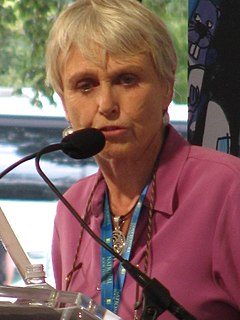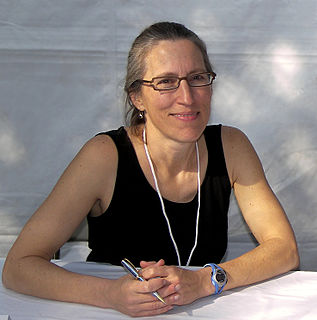A Quote by Vladimir Nabokov
I was the shadow of the waxwing slain By the false azure in the windowpane; I was the smudge of ashen fluff -and I Lived on, flew on, in the reflected sky. And from the inside, too, I'd duplicate Myself, my lamp, an apple on a plate: Uncurtaining the night, I'd let dark glass Hang all the furniture above the grass, And how delightful when a fall of snow Covered my glimpse of lawn and reached up so As to make chair and bed exactly stand Upon that snow, out in that crystal land!
Related Quotes
Our shipment of mowers was lost at sea and while we waited, winter descended and covered our green lawns with snow. That taught me a key lesson, the importance of timing. The shipping company lost the lawnmowers! By the time they showed up no one wanted them, as you can't cut grass when it's covered with snow.
The snow lay thin and apologetic over the world. That wide grey sweep was the lawn, with the straggling trees of the orchard still dark beyond; the white squares were the roofs of the garage, the old barn, the rabbit hutches, the chicken coops. Further back there were only the flat fields of Dawson's farm, dimly white-striped. All the broad sky was grey, full of more snow that refused to fall. There was no colour anywhere.
But I would rather have snow. Snow is the on.y weather I really like. Nothing makes me less grumpy than snow. I can sit by a window for hours watching it fall. The silence of snowfall. You can use that. It's best when there's background lighting, for example a street lamp. Or when you go outside and let it flutter down on you. That's real riches, that is.
In London the day after Christmas (Boxing Day), it began to snow: my first snow in England. For five years, I had been tactfully asking, 'Do you ever have snow at all?' as I steeled myself to the six months of wet, tepid gray that make up an English winter. 'Ooo, I do remember snow,' was the usual reply, 'when I were a lad.'
sometimes i'd wake up at two or three in the morning and not be able to fall asleep again. i'd get out of bed, go to the kitchen, and pour myself a whiskey. glass in hand, i'd look down at the darkened cemetary across teh way and the headlights of the cars on the road. the moments of time linking night and dawn were long and dark. if i could cry, it might make things easier. but what would i cry over? i was too self centered to cry for other people, too old to cry for myself.
The snow drifted down and down, all in ghostly silence, and lay thick and unbroken on the ground. It was a place of whites and blacks and greys. White towers and white snow and white statues, black shadows and black trees, the dark grey sky above. A pure world, Sansa thought. I do not belong here. Yet she stepped out all the same.
The sight of snow made her think how beautiful and short life is and how, in spite of all their enmities, people have so very much in common; measured against eternity and the greatness of creation, the world in which they lived was narrow. That's why snow drew people together. It was as if snow cast a veil over hatreds, greed, and wrath and made everyone feel close to one another. -- Snow pg 119
When we pulled out into the winter night and the real snow, our snow, began to stretch out beside us and twinkle against the windows, and the dim lights of small Wisconsin stations moved by, a sharp wild brace came suddenly into the air. That's my middle-west - not the wheat or the prairies or the lost Swede towns, but the thrilling returning trains of my youth and the street lamps and sleigh bells in the frosty dark and the shadows of holly wreaths thrown by lighted windows on the snow.
There were so many miracles at work: that a blossom might become a peach, that a bee could make honey in its thorax, that rain might someday fall. I thought then about the seasons changing, and in the gray of night I could almost will myself to see the azure sky, the gold of the maple leaves, the crimson of the ripe apples, the hoarfrost on the grass.
I meditate for the last time on this mountain that is bare, though others all around are white with snow. Like the bare peak of the koan, this one is not different from myself. I know this mountain because I am this mountain, I can feel it breathing at this moment, as its grass tops stray against the snows. If the snow leopard should leap from the rock above and manifest itself before me - S-A-A-O! - then in that moment of pure fright, out of my wits, I might truly perceive it, and be free.





































